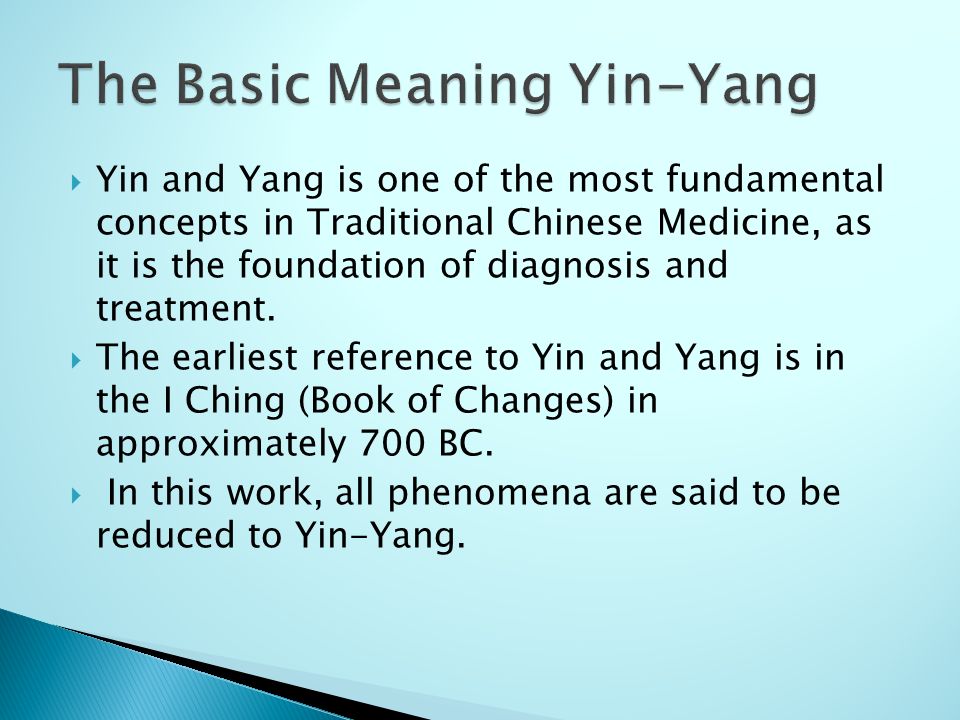

Beneficial vegetables include cooked root veggies, baked winter squash, onions, and mustard greens. Healing food choices include warm lamb or beef dishes, dark poultry, meat-based soups and stews, free-range eggs, eel, trout, and wild salmon. Regular, warming aerobic exercise is essential. Cold can also set in with age and may be combined with dampness. Your constitution is ever changing, so be sure you adjust with the seasons and your life situation.Ī cold pattern often occurs in vegetarians or those who eat primarily raw foods, especially when they live in the cold. Although more complex than this, the following is an overview of yin and yang patterns of imbalance and the food choices that can help restore balance. Imbalance can come from an excess, or deficiency, of yin or yang. By observing your body and understanding the energetics of food, you can make food and activity choices to speed your body™s healing progress. Your acupuncturist is trained to balance your body™s constitution. The effects of such food qualities on health have been observed for thousands of years. Toast, while dry to touch, actually moistens the body. Chilled wine is warming, as is roast beef. Boiled spinach for example, is cooling and moistening, as is baked tofu. This has less to do with the actual temperature or moisture of the food and more to do with its energetics. Yang foods tend to be warming and drying. Yin foods tend to be cooling and/or moistening for the body.

An anemic, melancholy woman is relatively yin. A ruddy-faced, irritable man with high blood pressure is relatively yang.

A red, inflamed rash brought on by heat is a yang condition. Arthritis made worse by cold weather is a yin condition. Winter is yin, while summer is yang, and night is yin while day is yang. Thus yin qualities include coolness, dampness, and darkness, relative to the yang qualities of warmth, dryness, and light. The Chinese symbol for yin is the shady side of a hill, while the symbol for yang is the sunny side. Sprouted grains, rye, and wild rice, although also carbohydrates, do not contribute to dampness because they have energetic properties different from flour and can actually be helpful for people with such yin conditions.Īccording to Eastern traditions the forces of yin and yang are energetic qualities that shape everything in the universe, including our health. According to TCM, however, bread and pasta are damp and cooling, and thus are not recommended for someone overweight, bloated, or suffering sinus congestion. The Food Pyramid, for example, groups bread, pasta, grains, and potatoes together as carbohydrates and suggests 5 to 8 servings. Western nutritionists quantify nutrients such as protein, carbohydrates, and fat, then group foods accordingly, with a one-size-fits-all serving recommendation. Modern nutrition science is based on knowing the chemical composition of foods and the biochemical pathways of the body. Nutritional balance from a TCM perspective is far different from that of Western nutrition. As a longtime nutritionist I can report profound positive changes when people get their food selections right. Whether you turn to acupuncture or allopathic medicine for healing, choosing the right foods for your constitution will speed your progress.Īccording to traditional Chinese medicine (TCM), health is a state of balance in which food choice is key.


 0 kommentar(er)
0 kommentar(er)
